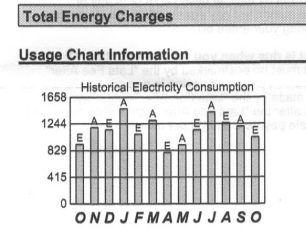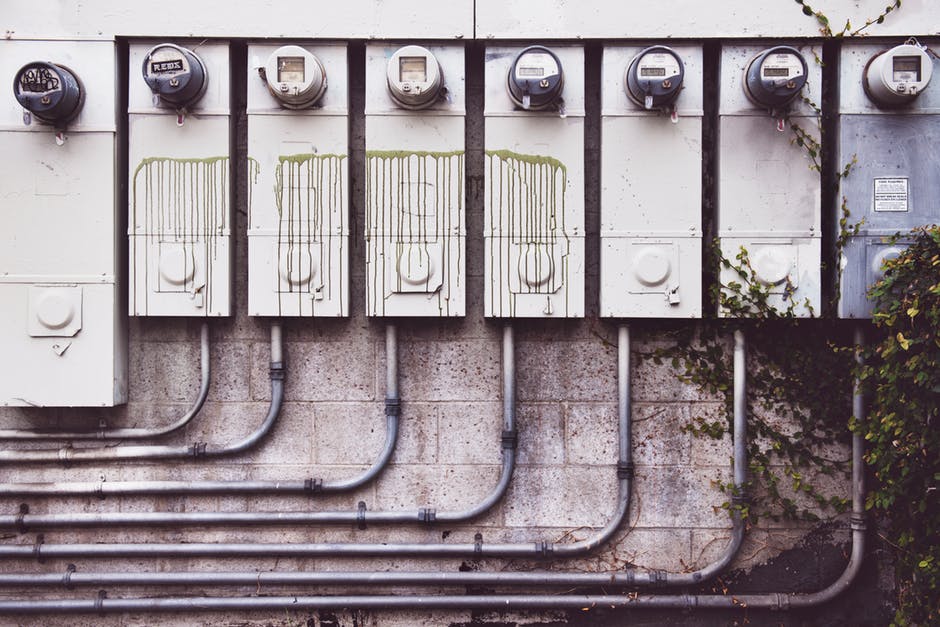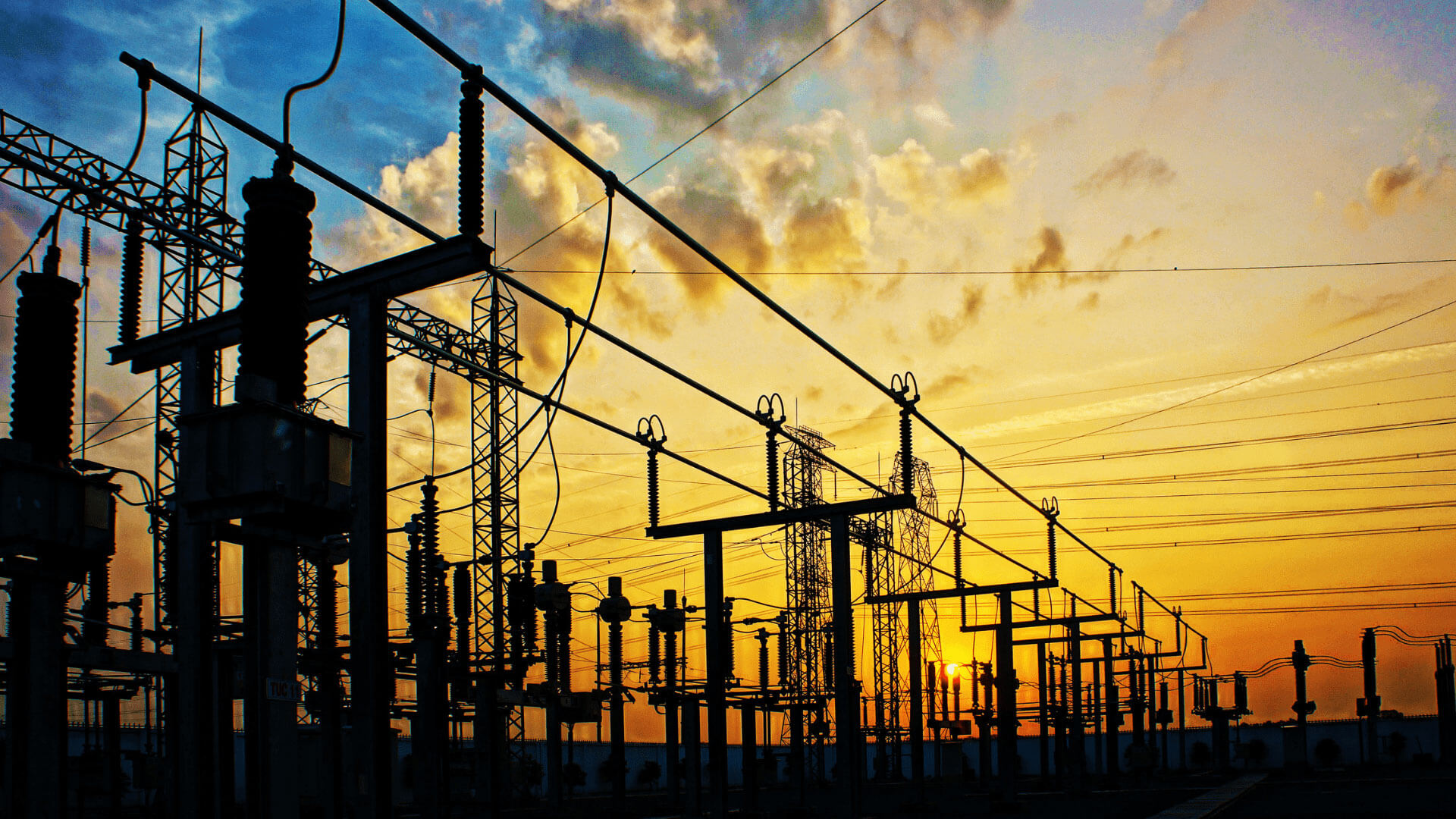You see it on your NYSEG bill (or any utility bill for that matter) every month: a letter A or a letter E next to your meter reading. Does it matter? The short answer: yes. You could be getting charged for energy you didn’t even use.
Bills are perplexing, with terms you just don’t see in everyday life. It can be overwhelming to get to the bottom of every single detail. Besides, you probably have more pressing or enjoyable things to do than learn the ins and outs of all of your utility fees.
Yet many of these things significantly impact how much you’re paying NYSEG–those A’s and E’s included. Some months, that letter E can raise your bill by hundreds of dollars.
What’s behind these estimated readings, and what can you do? We explain why estimated readings might be overcharging you and how you can fix the problem.
Table of Contents
The Raw Deal: What Is the Difference Between an Estimated and an Actual Reading?
Many people assume their utility company bills them at the end of each month based on, well, the energy they used that month. Intuitive, simple, effective.
But that’s not always the case. If you’re a NYSEG customer, your monthly readings can be either actual, meaning that NYSEG read your meter that month and billed you for your exact energy use, or estimated, meaning NYSEG didn’t read your meter that month and is venturing its best guess.

The utility bases estimated readings on historical energy use, or the electricity used in your household during the same month last year. If your bill was higher a year ago than it was this month, you can expect to pay for more electricity this month than you actually used. In other words, if you’re thinking about saving some money this coming month by cutting down on electricity, consider whether you’re going to get an estimated reading. If you are, don’t expect savings on your next bill.
However, and this is important, NYSEG corrects any inaccuracies from estimated readings at their next actual reading. If you’ve been charged extra one month, they will make up for that difference with a lowered bill the next month (and vice versa).
Still, although in the long run you pay the same amount, estimated readings can cause serious problems in the short run that can end up impacting your finances over time.
How Are Estimated Readings Affecting Your NYSEG Bill?
Estimated readings impact your bill in several ways.
First of all, they are bound to either overestimate or underestimate your charges for a given month. These inaccuracies could amount to as little as a few dollars or as much as a few hundred dollars, depending on your circumstances. Regardless of your income, an unexpected overestimate is a drag. And if you’re living on a tight budget, even a slight to moderate overestimate can really hurt.

I can guess what you’re thinking: what if the reading underestimates my usage? Just like in the sample NYSEG bill to the right, estimates can bring about lower bills. That’s great, right? Unanticipated savings are cause for celebration!
Well, not exactly. Since estimated readings get corrected in the end, underestimates ultimately result in a big makeup bill down the line. That’s why the chart shows so many big jumps from E to A; actual readings make up for underestimates, creating higher monthly bills to balance everything out.
The main outcome of all this is greater variation in your monthly bill, with swings up and down caused by inaccuracies in your estimates. If you’re ever wondering why your bill has skyrocketed out of nowhere, check to see if NYSEG is accounting for a discrepancy between estimated and actual energy use. That can be the difference between a normal monthly payment and a shocking one.
Why Does NYSEG Use Estimated Readings?
Utilities like NYSEG have a lot of customers. I mean a lot–NYSEG provides electricity for almost 900,000 people across New York. With that many customers, the utility can’t visit every meter to perform an actual reading every month. On the months they don’t visit your home (typically every other month), NYSEG substitutes estimated readings.
Utilities will also use estimated readings when they can’t reach your meter, like if the meter is behind a locked door, if nobody’s home to let a representative in, or if some other barrier on your property prevents the meter from being read. In these cases, you might end up with extra months of estimated readings.
We can all agree: nobody wants to be overbilled several months in a row. And even if the estimated readings result in underbilling instead, that means you’ll end up with one enormous makeup bill down the line. Either way, months of estimated readings will seriously disrupt your energy payments.

How You Can Make Sure You Get Actual Readings
We talk to customers every day that are frustrated by the lack of stability and predictability of their utility bill.
Here’s the great news: estimated readings aren’t necessary. You can avoid them entirely and get actual readings every single month.
All you have to do is take the readings yourself and send them to NYSEG. Although most people don’t have extensive experience reading their meters, learning isn’t difficult. NYSEG actually provides instructions for reading your meter along with directions for sending your reading along in its Guide to Meter Reading. You can even have NYSEG send you reminders when it’s time to check your meter and send in your usage.
Performing your own readings won’t change how much you pay over the long run, but it will smooth out your monthly payments so that you don’t get slapped with a surprising monthly fee. And it will ensure that you never get charged for energy you don’t use.

Smart Meters Could Eliminate Estimated Readings
NYSEG and RG&E announced in 2017 their plan to install smart meters on customers’ homes over the next five years. Assuming NYSEG follows through, this would change the game for estimated readings. More simply, it would eliminate them entirely. Smart meters transmit energy readings directly to the utility, erasing the need for manual and estimated readings. They can also provide a host of other efficiencies, from reducing blackouts to enabling smarter household energy use.
If your household has already received a smart meter, you’re in luck! Most people won’t get one for several years at least. Until that time, the best strategy is still to perform your own readings.
Don’t Get Bossed Around By “Best Guesses”
For years and years, the terms “energy” and “choice” were almost oppositional. You were stuck with your utility and subject to its terms and conditions.
Now, the landscape is changing. People are getting smarter about their energy, their options are expanding, and utilities are opening up new ways to smooth out and reduce your bill. There’s no need to pay your electricity bill based on rough estimates anymore. Take control of your energy bill with actual readings.
By the way, if you’re looking for another path to a lower, more predictable NYSEG bill, we have one for you:




I want to make sure that I use the right electrical services. It makes sense that I would want to compare different rates! That way, I can ensure that I end up paying an amount that I can afford.
This is the first time that I have noticed an estimated reading two months in a row. I am used to every other month, because it gets corrected the next month. I hope this is not going to be a habit.
I'm sorry to hear that. Two months in a row is a little abnormal but not totally uncommon, so hold out hope that next month's will correct for the last two. If you get another estimated bill, it may soon be time to alert NYSEG. Wishing you luck!
After numerous complaints, I finally got a meter reader to come out after 6 months of estimated reads. Should I feel confident that my next bill will be accurate, taking into account that many months of estimated reads?
If the meter reader came to your home, you should get an accurate bill next month that reflects any needed adjustments from your estimated bills. If you're getting estimated bills, it's because no one is reading your meter. Should be solved now!
I have a question, suppose I build a new house and install a brand new smart meter and if I get an estimated bill for the first month. Then may I know how was the estimate bill generated? As it had no prior usage history.
Hi Gaurav, one of the biggest benefits of a smart meter is that they can send your usage data to your utility - hence why they're called "smart"! In other words, you probably won't be getting estimated bills anymore once you install a smart meter. Hope this helps!
We have been getting and estimated bill for the last 7 months, and I believe that the estimated usage was low for each month. Now I’m sure that after their price increase we will get an actual reading that will be high and the cost will be significantly more. Is there any legal recourse for this manipulation?